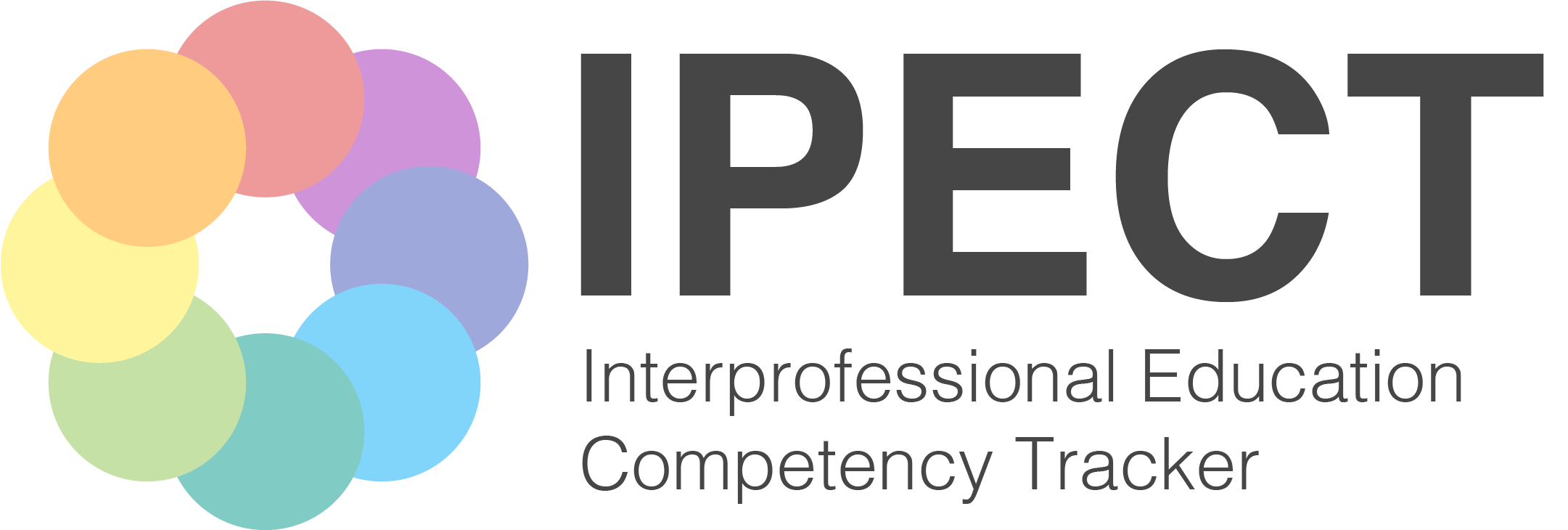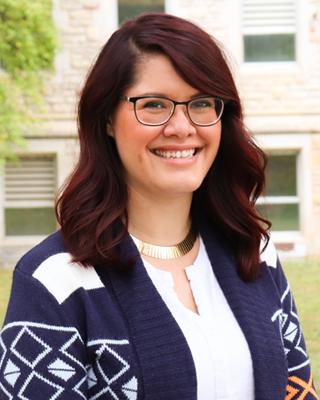Overview
The University of Saskatchewan (USask) Health Sciences Supports Interprofessional Education
Effective interprofessional teamwork is critical to patient care, safety, and worker well-being. Candid, respectful dialogue between and among colleagues is vital to reducing clinical errors and increasing employee wellness, efficacy, and engagement. Through interprofessional education, learners cultivate the abilities and skills to be contributive, effective members of high-functioning healthcare teams. Working with our colleges, schools and programs, faculty and instructors, and staff and learners, the USask Health Sciences IPE Team supports the “interspace” of centrally coordinated interprofessional education initiatives.
Learners, faculty, and staff involved in USask's centrally coordinated IPE experiences come from different professional programs and schools, including:
- Arts and Science
- Dentistry
- Medicine
- Kinesiology
- Nursing
- Nutrition
- Pharmacy
- Public Health
- Rehabilitation Sciences
- Veterinary Medicine
Two committees actively advise on the centrally coordinated interprofessional education activities supported by the USask Health Sciences:
- Health Sciences Program Advisory Committee (PAC)
- This committee meets quarterly and has membership including associate deans, academic.
- View the PAC Terms of Reference and the PAC Membership List.
- Interprofessional Education Curriculum Committee (IPECC)
- This committee meets monthly and includes members nominated by their academic programs.
- View the IPECC Terms of Reference and the IPECC Membership List.
Both committees include members from the HSSA (Health Sciences Students' Association) and USask Health Sciences.
USask Health Sciences IPE Team
The University of Saskatchewan's health science programs offer many interprofessional education opportunities to their learners. The Health Sciences IPE Team supports centrally coordinated IPE initiatives.
- Provide our learner colleagues with opportunities to practice team and communication skills with colleagues from a variety of healthcare programs.
- Provide our faculty, instructor, and staff colleagues with up-to-date IPE resources, innovations, and opportunities to learn more about interprofessional education and the team as well as communication skills that are important for successful, high-functioning, contributive teams.
- Work collaboratively in interprofessional teams to develop relevant, timely, and meaningful IPE experiences using the foundational approaches and values of rapid prototype design, continuous quality improvement, cooperative learning, and strengths-based appreciative inquiry.
Role clarification and scope of practice is important on any team. Our USask Health Sciences Interprofessional Education (IPE) Team:
- works with and supports IPE governance committees and the Health Sciences Students’ Association.
- works with instructors and programs to integrate IPE into their courses and programs.
- connects with other institutions which have learners participating in USask IPE opportunities.
- collaborates in the development and facilitation of IPE events.
- provides data related to IPE accreditation for our college partners.
- provides feedback to learners and programs.
- updates the Health Sciences Deans Committee on the “interspace” of IPE.
- develops IPE experiences.
- provides an infrastructure that transcends programs, colleges, and schools as part of a shared identity.
- manages IPECT (Interprofessional Educational Competency Tracker).
IPE Activities
The University of Saskatchewan's health science programs provide a variety of interprofessional education opportunities to meet accreditation requirements and responsibly prepare learners to be effective team members. Some of these experiences are offered independently by programs and some are centrally coordinated by the USask Health Sciences IPE Team.
All centrally coordinated IPE events are active learning opportunities for learners to meet and work with future health care colleagues. These experiences allow learners to integrate theoretical classroom learning into real-life, real-time, team-based situations. Actively engaged in low-fidelity simulations related to interprofessional activities, participants do teamwork and develop relationships with future colleagues.
- Event activities are developed by interprofessional teams, reviewed by interprofessional teams, and refreshed annually by interprofessional teams.
- All centrally coordinated events are low-fidelity simulations drawing on experiential learning principles and practices.
- Centrally coordinated interprofessional education events are structured to maximize engagement, personal responsibility and autonomy, professionalism, and interprofessionalism.
- Learners practice their team skills using timely and relevant clinical cases and scenarios vetted by our clinical experts.
- Team activities and related resources are vetted by our team communication experts.
- We use principles of microlearning, gamification, and co-operative learning in all centrally coordinated events.
- Events are designed to be meaningful and relevant, understandable, and easily managed.
- Healthcare professionals will recognize these as salutogenic principles. If you are interested in learning more about salutogenesis, check out this blog post. It takes about five minutes to read.
Bottom line: All centrally coordinated IPE events are scaffolded active learning opportunities to practice and reflect on team skills.
Through active participation and reflection, learners:
- come to feel how important their contributions are to patient care — and to the functioning of healthcare teams — as they practice their professional roles in real time.
- better understand the importance of clear communication with other disciplines in order to contribute to high-quality healthcare for (and with) patients, families, and communities.
- develop confidence in their discipline’s role and find their professional voice within their professional role.
- learn the importance of their role within the healthcare system.
Bottom line: Learners benefit from interprofessional education experiences to the extent to which they are prepared, professional, contributive, and open to learning — not only about themselves as team members but also about their future colleagues.
All centrally coordinated IPE events have a “rhythm” following these four steps:
- Preparation. Learners get ready by becoming familiar with the resources that will help them be successful in the activities they do with their colleagues. Resources highlight communication strategies, teamwork practices, reflective tools, and conceptual frameworks. It is assumed that learners will come with the clinical knowledge they need from their work in their individual programs. Step 1 establishes a common language.
- Participation. Small teams of three to four learners from different professions meet to address their team tasks together. Tasks have included the following:
- Team-focused skill practice. Discussion of effective teams, communication approaches that are beneficial to teamwork, and strategies that contribute to team effectiveness.
- Teams working through a clinical scenario or case to practice these team skills. The clinical scenario or case is secondary to the practice of team skills. We only use the clinical case or scenario to practice the team skills.
- Team reflection. Teams are provided with reflective questions to guide the debrief of their shared learning experience.
- Individual reflective practice. This component is essential for the development of team and communication skills. Learners are guided through a reflective practice framework to complete the event; an event cannot be completed without completing the individual reflective practice activities.
Currently, three types of centrally coordinated IPE events are offered — SITEs, Real People/Real Experiences, and IEEs.
- SITE (Skills for Interprofessional Team Effectiveness)
- Effective interprofessional teamwork is critical to patient care and safety and worker well-being. SITEs provide an opportunity for learners from health science programs to practice the professional roles they are preparing for with future colleagues. Learners attending a SITE discuss and practice team and communication skills in small interprofessional teams of three to four people as they work through a clinical scenario or case. The emphasis is on teamwork.
- SITE events are conducted over two or three weeks, depending on the level of complexity, and are independent in that learners can attend them in any order. Learners can expect to spend approximately two hours per week when they are involved in a SITE event. We currently run five to six SITEs per academic year.
- Real People, Real Experiences (previously known as "Patient and Family Narratives")
- In Real People/Real Experiences we invite members of our community to share their healthcare experience in a 12-to-15-minute video. Learners watch this video and then meet in their interprofessional teams to complete their shared tasks and practice their team skills. Team tasks include exercises such as developing a timeline of healthcare, a scope of practice chart, and/or questions for the guest. Individual tasks include reflection on team contributions and a note to the learner's future professional self.
- Real People/Real Experiences are scoped at 90 minutes over the course of one week. We currently run seven Real People/Real Experiences per academic year.
- IEE (Interprofessional Experiential Education)
-
IEE events are semi-structured IPE opportunities that support and encourage interprofessional collaboration in clinical placements/practicum settings. In IEE events, participants extend collaborative skills introduced in course-based IPE events like SITEs and PFNs in more complex, less structured settings and develop and practice new skills that have direct relevance in specific clinical placements.
In voluntary, learner-directed IEE events, participants:
-
Come and go from the event on their own timeline. Although scoped at 13 weeks, participants can get involved at any point in their practicum for as long as it is of relevance and value. IEE events are primarily asynchronous and online hosted in IPECT. This makes them as flexible as possible.
-
Access resource modules specific to their specific clinical placement as well as modules related to workplace settings and collaborative practice more generally. Participants access these modules in the way that works best for them. Think ‘just-in-time professional development’.
-
Connect with participants in similar clinical placements. Participants in IEE events are encouraged to meet regularly with colleagues to support one another in their clinical placement. Have a behind-the-scenes IEE interprofessional Development Team of faculty, instructors, learner colleagues, and staff who are particularly interested or/and expert in the specific IEE clinical placement. Participants can reach out to Development Team members at any time throughout their placement (in addition, of course, to preceptors and their specific program’s resource team).
-
Actively and intentionally integrate reflection (both team and individual) into practice.
-
-
This short video, created by recent participants in an IEE event, provides an overview of their experience. (~6 minutes).
NOTE: SITEs / Real People, Real Experiences / IEE events are facilitated online through IPECT. When logistically possible, it is recommended that teams meet in-person.
IPE Learning Platform

IPECT is an online learning platform purpose-built to support interprofessional education and allow learners to track their interprofessional competency development. As the only platform all USask health science learners have in common, it is another element in our “shared language, shared experience” initiative.
Through IPECT, the Health Sciences IPE Team offers and manages centralized events (learning sequences, registrations, submissions, analytics, etc.), offers resources, and provides IPE-related microlearning challenges.
- For more information on the IPECT platform, please visit https://ipectapp.com/.
- To sign in to IPECT for a USask event, go to usask.ipect.app.
We use IPECT event cards to guide online, self-directed learning experiences. The event card is essentially a workbook to guide the experience, provide resources, and act as a portfolio for learners to record their responses. Submitting a response to one activity unlocks the next one and learners can go back to event cards to see their notes at any time.
The competency tracker feature in IPECT records the events and interprofessional education activities in which learners participate so they can track their progress in competency development. Learners can print a progress report at any time and download PDFs of their submissions for events.
NOTE: IPECT is populated with the six competency domains in the Canadian Interprofessional Health Collaborative’s (CIHC) national framework.
Whether they are learners from University of Saskatchewan health science programs or integrated learners joining us from other institutions, the Health Sciences IPE Team can successfully—and easily—host large numbers of participants using IPECT. To date, we have had learners from Saskatchewan Polytechnic programs and the University of Regina social work program join USask's centrally coordinated IPE events using IPECT.
Collaborative Practices Blog
For more on effective teamwork and collaboration, check out our blog where we showcase the effective teamwork happening across the Health Sciences with a particular focus on interprofessional and interdisciplinary experiences.
NOTE: The opinions expressed are those of the authors and may not necessarily reflect those of the University of Saskatchewan or of the USask Health Sciences.
Loading...





